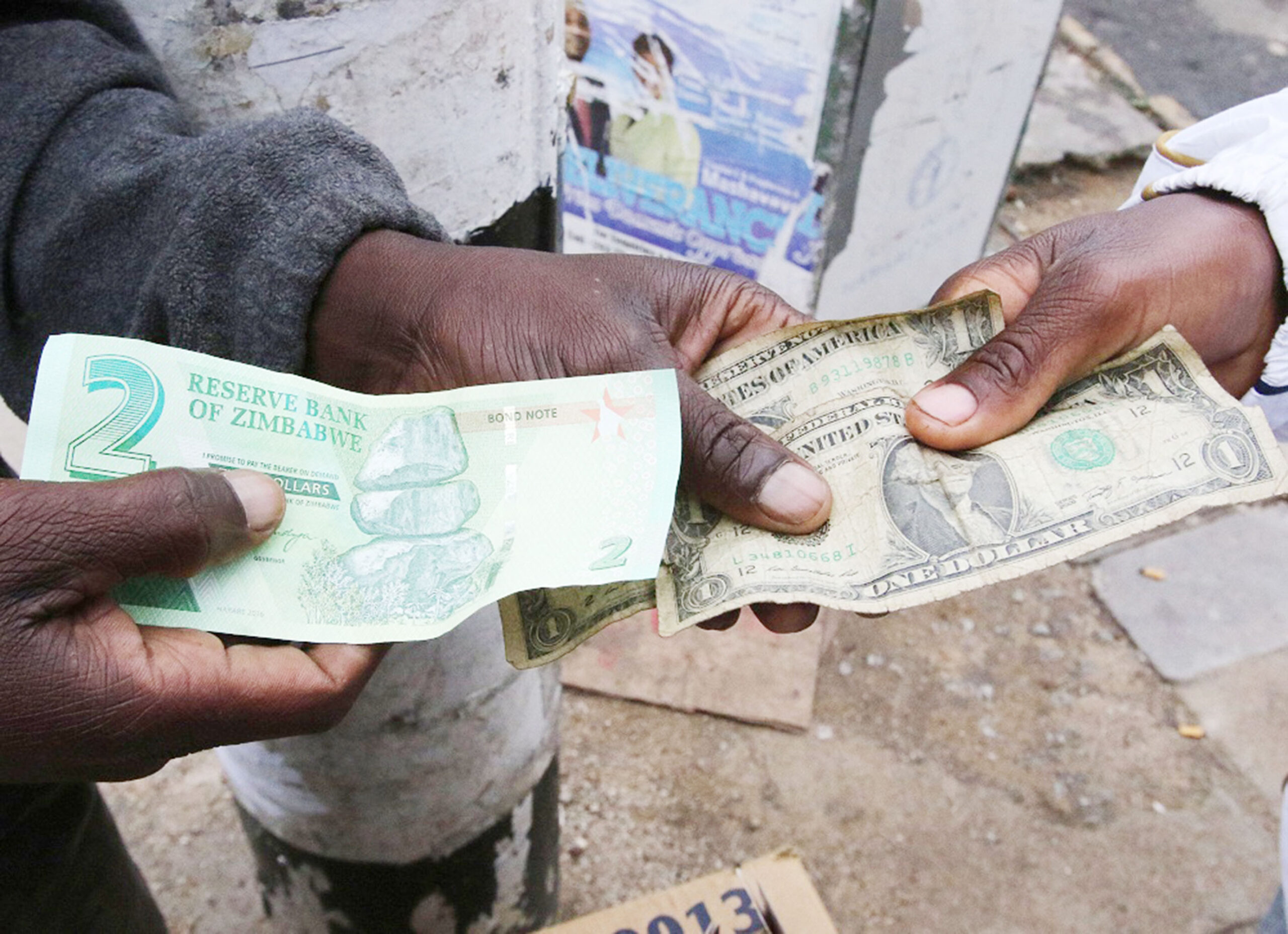Exchange rate, informalisation concern business
PARALLEL and official market exchange rates convergence should be at the core of the government’s economic stabilisation strategies going into 2024 if the country is to realise a stable economic environment, business executives have said.
This comes as Zimbabwe is currently riddled by notable divergence between the official and parallel market exchange rates.
As of yesterday, the parallel market exchange rate hovered between $10 000 and $12 000 to US$1 while the official exchange rate moved up to $8 240 on Wednesday after being stuck below $6400 against the greenback for a while.
The gap is feared to be posing significant pricing distortions in the market, as the phenomenon misrepresents the true value of the domestic currency and restricts the efficient functioning of the foreign exchange market, ultimately hindering economic growth.
According to business executives, the government must step up and address price distortions currently manifesting in the economy driven mainly by the dual currency environment and the widening gap between the official and parallel market rates.
Analysts feel that official and parallel market exchange rate convergence is crucial for promoting economic stability, reduction of distortions in the currency market, boosting investor confidence, and encouraging formal transactions.
Convergence of the two rates helps to eliminate pricing distortions and promote economic stability, ensuring a more transparent and efficient currency market while divergence creates uncertainty and instability in the economy. It also reduces informal transactions and encourages individuals and businesses to engage in formal and legal foreign exchange activities.
The turbulent and spiraling parallel market exchange rate in the local economy has significantly depreciated local currency value on the parallel market to the detriment of the general citizenry whose earnings are mainly in local currency.
In that regard, business executives have decried the erosion of local currency and are keen to see consumer spending power being restored in 2024.
According to market watchers, a large gap between official and parallel market exchange rates encourages individuals and businesses to engage in arbitrage activities, it also leads to the prevalence of informal and illicit transactions as people bypass formal foreign currency trading channels turning to the parallel market.
In an interview over the phone, United Refineries Limited chief executive officer Busisa Moyo said the lack of a single reference rate discourages foreign investment, increases inflationary pressures, and hinders economic growth.
“Convergence is a big topic, we need a single reference rate and rate convergence for prices and wages. Currently, the parallel market is going up to $14 000 and the official rate is at $6 000 which is a huge disparity. It’s actually the cause of a lot of the distortion that we are trying to take care of in the market,” said Moyo.
Having a single reference rate provides a more accurate reflection of the true value of the domestic currency, making it easier for businesses to plan and transact in foreign currencies.
“It is a big task in our in-tray, we really need to tackle this issue of exchange rate convergence or a single reference rate. As we know the South African Rand today is at R18, 6 against the US$1.
“If you go to wherever in the corners of South Africa, you have one rate for conversion and we are lacking that. That is hurting economic activity to quite a significant extent.
“It is affecting growth and expansion by corporations. It is affecting the ability of local existing companies to invest and expand operations. So I think it’s probably the biggest issue that has to be addressed this year. You need stability to plan and to have viable economic activity that’s sustainable.”
Official and parallel market exchange rate convergence signals a currency market that is functioning more effectively and transparently. This can help to boost investor confidence in the country’s economy, attract foreign investment, and promote economic growth.
Speaking on condition of anonymity Chief Executive of one manufacturing entity said he was keen to see an economic environment were earnings were restored and growth of more formal employment.
“Everybody wants to see things get back to normal, we want to see the purchasing power of consumers improving in 2024, we would want to see an increase in formal employment, and we would want to see the economy formalising.”
“Informalisation is breeding informalisation. It has not been tackled, and that is why we are seeing the growth of the informal sector, and informalisation also affects government revenues and taxation.
“We would want to see economic growth that is accompanied by growth in the job market, all those things can happen in a stable environment,” he said.
According to the business community, the government must also ensure the availability of electricity in the year to avoid suppression of capacity utilisation in industries.
Power outages continue to be a thorny issue in the execution of business operations across the board and businesses would want to see the issue being addressed for a progressive 2024.
Executives talked broadly about the need to restore consumer spending power which has fallen victim to the massive erosion of local currency that is earned by many ordinary citizens.
Moyo said this was being reflected through growing reliance on diaspora remittances.
“I think there is quite a lot of consumer distress, consumer spending power is pretty low. We need to go back and take care of that in 2024.
“More and more people are now relying on diaspora remittances to be able to take care of basic physiological needs and food.
Overall the company overseers highlighted the need for continued dialogue and consultation will be key
He said the engagements would require the involvement of consumers, business people, industrialists, and the public sector.
“It is going to be very difficult to go beyond this point without more intimate dialogue. Everyone has to play a role in really just shaping some of our economic challenges,” said Busisa Moyo.-ebusinessweek










